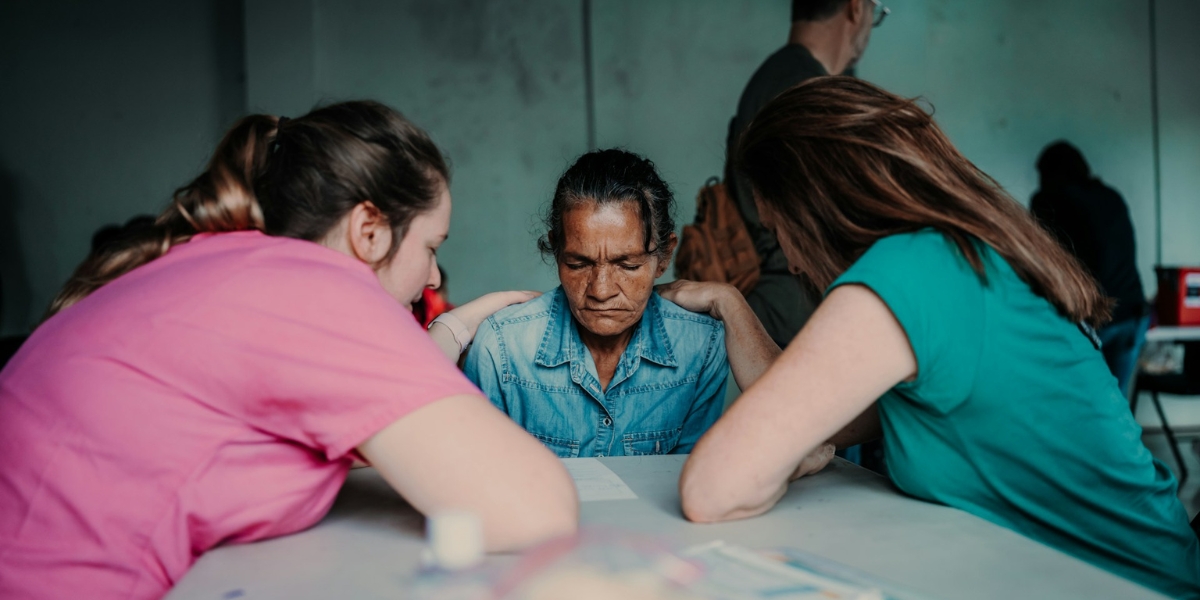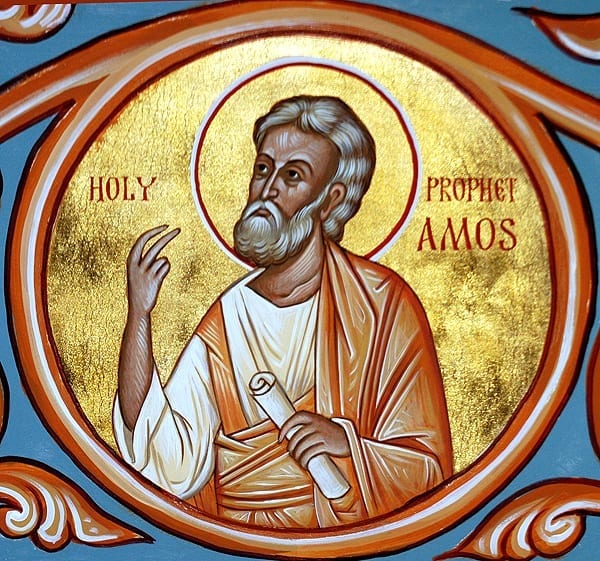Pope Leo XIV – Inaugural Mass Homily
Elected on May 8, 2025, as the 267th successor of St. Peter, Pope Leo XIV’...

This post is also available in: Spanish, Italian
Christianity is about receiving a free gift of salvation — that’s true. But it is also about passing it forward. But don’t you need a degree and extensive training first? God doesn’t so much call the equipped; he equips the called. We quickly move from disciples to apostles & prophets to share in the mission of the Church & the lay apostolate. For the 15th Sunday in Ordinary time, cycle B.
To LISTEN to this post read by Dr. Italy, click on the play arrow on the left, directly below this paragraph.
Everybody likes free gifts. Advertisers know that a campaign will have much better results if there are free samples or a free gift with every purchase. A friend of mine lived by this motto: when it’s free, take two.
But when we receive a favor, we’re wise enough to know there has got to be a catch somewhere. The giver usually expects something of us in return.
At the beginning of his letter to the Ephesians, Saint Paul tells us that God is the most generous of all givers. In fact his generosity is immeasurable and unlimited. He does not just give us a percentage off the price of our purchase, or a trinket to induce sales. He does not just forgive a few sins and require that we work off the rest of our tab. He entirely cancels the debt, wipes the slate clean and, as a bonus, gives us supernatural insight into the cosmic plan that makes the whole universe tick, the “mystery” that underlies history. He gives us eternal life as a free gift, and as the down-payment on this inheritance, gives us the supernatural power of his own Spirit, dwelling in our hearts.
But of course, there is a catch. We are filled with gifts so that we in turn can become givers. We owe love and worship and gratitude to the Giver, of course. But that’s not what He is most concerned with. After all, He is God, perfect in himself, and has no needs. Instead, His preoccupation is with our neighbors who do have needs. What we’ve received as a gift, He calls us to give as a gift. We are to “pass it forward.”
That’s why Amos, a simple shepherd and dresser of sycamores, is not just given God’s word, but is called to leave his home in Judah to bring that word to the royal sanctuary in Bethel. It’s also why fishermen and tax collectors are first called disciples, those who receive and learn the teaching of the master, but are then dubbed “apostles,” meaning those who are “sent out” to spread that teaching.
Funny thing, though. When prophets and apostles bring God’s gifts to town, not everyone is excited. The King’s chaplain told Amos to go home. Jesus warned the apostles that some would not be interested in their message. They were to shake the dust of such towns from their feet and move on.

The scope of these Scriptures, however, is not simply restricted to the job description of professional clergy and foreign missionaries. It is true that the bishops of the Catholic Church are the official successors of the apostles and ultimately bear responsibility for the Church’s mission to all nations. In Greek, the word bishop means “overseer” or “superintendent.” Their role is not to do it all, but to oversee and direct it all.
The Church teaches that every person who is baptized and confirmed receives directly from Christ a mandate to share in the Lord’s prophetic mission.
Prophet literally means spokesman. While most of us will never be called to utter oracles that predict the future, we all are called to speak in behalf of God a message that sometimes challenges people and other times brings them comfort. While most of us are not called to the sacrament of Holy Orders, we are all called to the “lay apostolate.” And according to the teaching of the Church, we’ve been amply equipped with the gifts necessary to carry out this mission, endowed with “every spiritual blessing in the heavens” (Ephesians 1:3).
Of course we need to develop these gifts and hone our apostolic skills. We need education and formation.
But neither Amos nor the apostles were perfectly polished before they were sent out. If we wait till we know it all, we’ll never share it. There comes a point where we just have to take Nike’s advice and “just do it!”
For more on the mission and apostolate of all Christians, visit the EVANGELIZATION SECTION of the Crossroads Initiative Library.
This post focuses on the mission of the church and the lay apostolate. We are called to be disciples, apostles & prophets. It serves as a reflection upon the readings for the 15th Sunday in Ordinary Time, liturgical cycle B (Amos 7:12-15; Psalm 85; Ephesians 1:3-14; Mark 6:7-13).
Peggy Lockhart
Posted at 17:44h, 07 JulyDr. Italy,
Unknowingly, you have used a very unpopular un-American company slogan! Nike announced this week: https://thefederalist.com/2021/06/25/of-china-and-for-china-nike-ceo-admits-company-exists-to-serve-communist-china/
Peggy in Louisiana